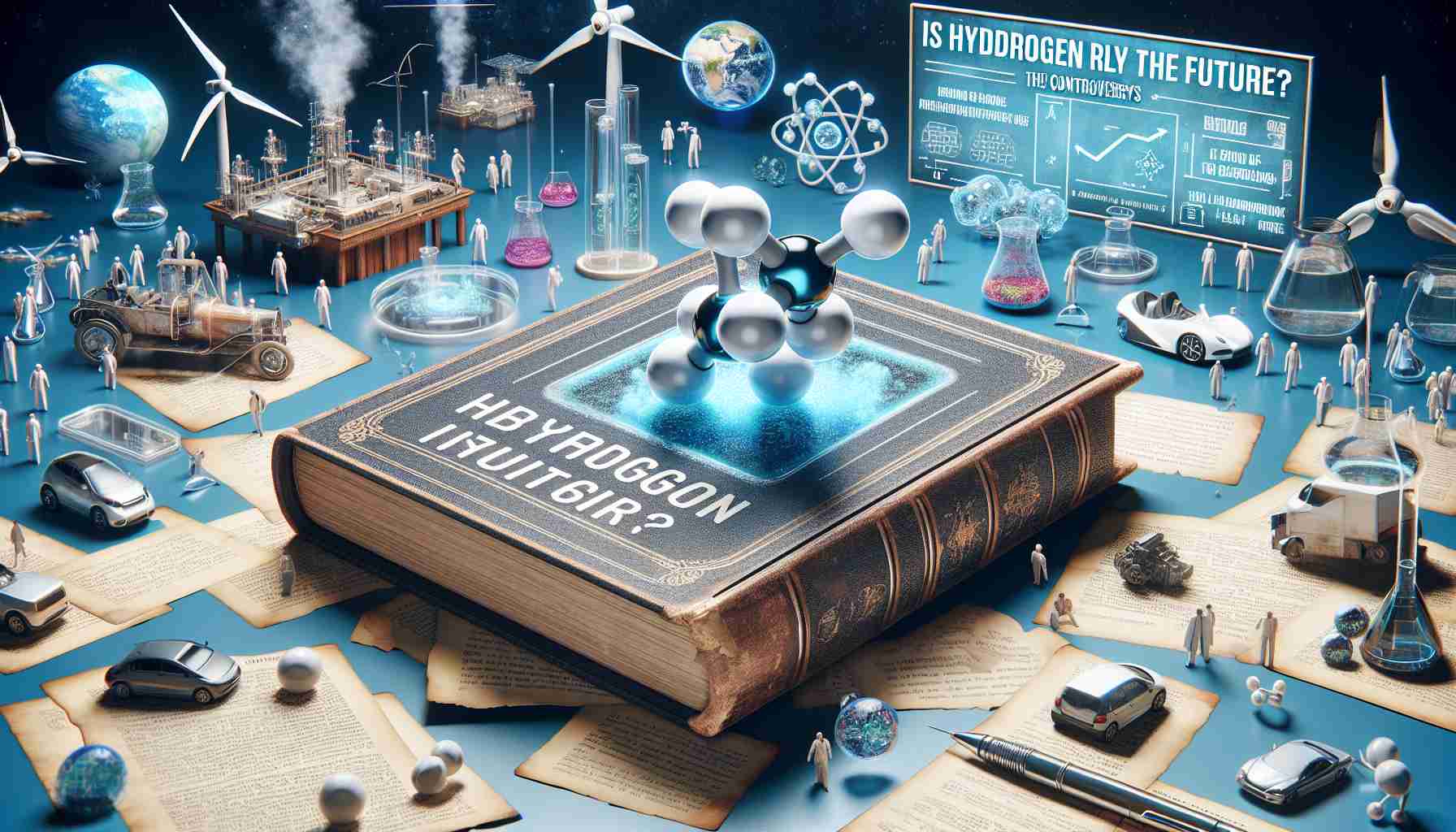The Debate Surrounding Hydrogen Power
Toyota faces criticism for promoting its hydrogen-powered vehicles as being completely “emissions-free.” This debate ignited during the high-profile event of the 2024 Olympics in Paris, where the Toyota Mirai was designated as the official vehicle.
Despite Toyota’s long-standing commitment to hydrogen technology, including innovations like the Corolla Cross Hydrogen Concept, experts are raising concerns about the ecological validity of hydrogen fuel systems. While Toyota highlights the zero-emission feature at the point of use, critics argue that the overall sustainability benefits compared to electric vehicles (EVs) are questionable.
How Hydrogen Fuel Cells Function
The hydrogen fuel cell technology operates by converting hydrogen and oxygen into electricity, emitting only water vapor as a byproduct. This aspect is appealing; however, it becomes problematic when considering the source of the hydrogen. If it’s derived from fossil fuels, the environmental impact diminishes significantly.
The Paris Olympics and the Backlash
The decision to feature the Mirai at the Olympics sparked a strong reaction among over 120 academics and engineers, who contacted the organizing committee to express concerns about the misleading portrayal of hydrogen’s environmental benefits. They argue that many stakeholders in the hydrogen sector misrepresent its sustainability.
While hydrogen power systems offer some advantages, such as faster refueling times, their reliance on conventional hydrogen production raises doubts about their actual environmental footprint. The future development of truly sustainable hydrogen production is crucial in determining whether it is a viable alternative to clean energy solutions.
The Truth Behind Hydrogen Power: Opportunities and Challenges
The conversation around hydrogen power has gained significant momentum, especially as automakers like Toyota promote hydrogen-powered vehicles as emission-free options. These discussions intensified during the 2024 Paris Olympics, where Toyota’s Mirai was showcased as the official vehicle. While the potential of hydrogen technology is promising, the critical examination of its sustainability reveals a complex array of advantages and challenges.
How Hydrogen Fuel Cells Function
Hydrogen fuel cells operate by converting hydrogen and oxygen into electricity, generating only water vapor as a byproduct. This clean process is appealing, yet it is essential to scrutinize the sourcing of hydrogen. Currently, a substantial portion of hydrogen is produced from fossil fuels, which tangibly compromises its environmental benefits. This has prompted calls for innovation in green hydrogen production methods, such as electrolysis powered by renewable energy sources.
Pros and Cons of Hydrogen Power
Pros:
– Rapid Refueling: Hydrogen vehicles can be refueled in a matter of minutes, similar to traditional gasoline vehicles, offering a convenience that electric vehicles (EVs) with longer charging times cannot match.
– Long Range: Hydrogen fuel cells typically provide vehicles with a longer range than many battery electric vehicles, reducing range anxiety for drivers.
Cons:
– Current Production Methods: Most hydrogen today is derived from natural gas, raising questions about its overall environmental impact.
– Infrastructure Challenges: The refueling infrastructure for hydrogen vehicles is still limited, particularly in comparison to the broad network of EV charging stations.
– Cost of Production: Generating green hydrogen remains costly, which can limit its scalability and widespread adoption.
Sustainability Insights and Innovations
As research and development in this sector continue, a transition toward sustainable hydrogen production techniques is imperative. There are innovative approaches being explored, including:
– Electrolysis Technologies: Emerging technologies that use renewable energy to split water into hydrogen and oxygen, potentially providing a cleaner alternative.
– Biomass Gasification: A process that converts organic material into hydrogen, presenting an avenue for sustainable energy production.
Understanding these innovative pathways is crucial for the future viability of hydrogen energy as a sustainable alternative.
Market Analysis and Future Predictions
The hydrogen market is projected to grow significantly in the coming years, driven by advancements in technology and increasing investments in renewable energy sectors. With international goals aiming for carbon neutrality, hydrogen can play a pivotal role in decarbonizing hard-to-abate sectors such as transportation and industry.
As automakers and governments explore hydrogen as a solution, it will be essential to balance promoting its benefits with a transparent acknowledgment of its limitations and potential for improvement. This balance will ensure a more credible and informed discourse surrounding hydrogen technology.
For more detailed information about innovation in hydrogen technologies and market trends, check out Hydrogen Fuel News.









